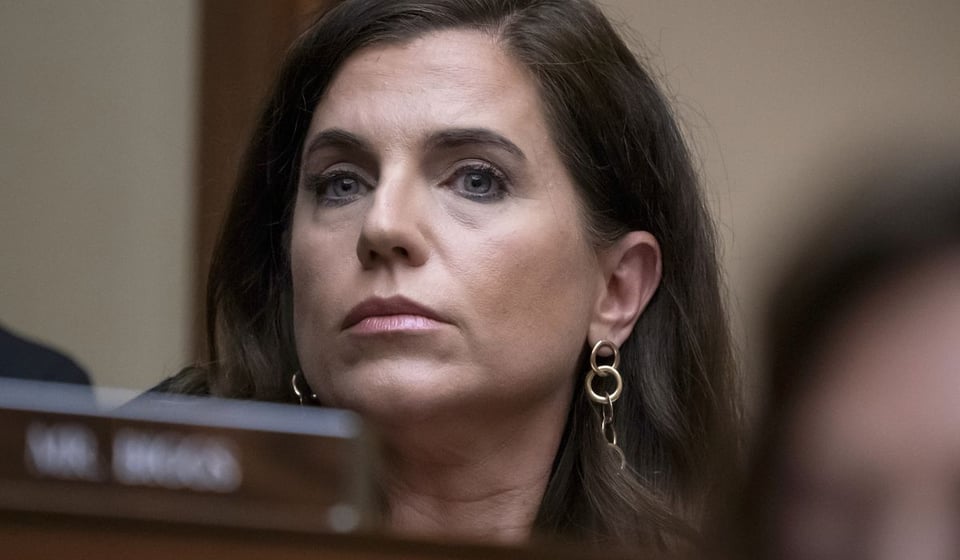Thursday,April 20, 2023. Annette’s News Roundup.
To read an article excerpted in this Roundup, click on its blue title. Each “blue” article is hyperlinked so you can read the whole article.
Please feel free to share.
Invite at least one other person to subscribe today! buttondown.email/AnnettesNewsRoundup
_______________________
Joe is always busy.
Biden Summons Big Donors to Washington as 2024 Campaign Nears
Top donors to President Biden have received a last-minute invitation to travel to Washington at the end of next week to see Mr. Biden as he gears up for a 2024 campaign, according to more than a half-dozen people who have been invited to or briefed on the event.
Invitations are going out to some of the biggest donors and bundlers for Mr. Biden’s 2020 campaign — those who donated or raised at least $1 million, according to one person. The initial round of invitations is being made by phone instead of email.
The event, which is not a fund-raiser, is seen as an effort to rally donors before what is expected to be an expensive 2024 run. (New York Times).
_______________________
Makes you proud.
Secretary Clinton, Chancellor of Queens University Belfast.

 _____
_____
Grace Segers of the New Republic thinks Democrats should just wait for Senator Feinstein’s return.
What Can the Democrats Do Now That Republicans Blocked the Feinstein Swap?

Republicans blocked efforts to temporarily name a replacement to the Senate Judiciary Committee while Senator Dianne Feinstein is recuperating from shingles, a blow for Democrats as they seek to confirm judges to the federal bench. Senator Lindsey Graham, the Republican ranking member of the committee, objected to Senate Majority Leader Chuck Schumer’s unanimous consent request, setting up a more challenging vote on the issue.
Now that they have blocked the seating of a replacement, Democrats worry that Biden’s judicial nominations could be held up indefinitely. Without Feinstein present, the committee is evenly divided, and Democrats will be unable to advance judicial nominees unless they have bipartisan support.
“Do the math,” Senate Judiciary Committee Chair Dick Durbin told reporters on Monday. “I don’t have a majority if she’s not here.” Durbin told me on Tuesday that Feinstein’s absence would also affect “legislation as well as nominations.”
With Republican opposition to naming certain and Senate Democrats unwilling to outright call for Feinstein to resign, the best option for the majority may be to wait out Feinstein’s absence. “My hope is that it will be a very short-term challenge, because Senator Feinstein will be back soon,” Blumenthal said. (Grace Segers, The New Republic.)
_______________________
Let’s not forget Clarence Thomas.
A clear analysis of the growing case against Clarence Thomas, by Ruth Marcus, associate editor and columnist for The Washington Post.
Clarence Thomas enters the danger zone by Ruth Marcus.

The matter of Clarence Thomas’s relationship with billionaire Harlan Crow has now entered new territory, treacherous for the justice and the court on which he serves.
Until Thursday’s ProPublica’s report disclosing Crow’s purchase of property owned by Thomas and his family in 2014, the story was about Thomas’s judgment, or lack thereof, in accepting large amounts of luxury travel from the Republican megadonor, and whether he had failed once again to comply with federal financial disclosure rules.
The latest revelation escalates the situation to a new and concerning level. This time, Thomas directly received money from Crow — perhaps in excess of the market value of the Chatham County, Ga., properties that Crow purchased from Thomas and his kin.
This is no longer about receiving “personal hospitality.” It’s about a financial transaction between Thomas and a GOP donor who has also subsidized his vacations.
Thomas’s relationship with Crow and the accuracy of his financial disclosure reports must now be fully scrutinized by the Judicial Conference of the United States, which oversees the federal judiciary and may refer the matter to the Justice Department for additional action.
As Chief Justice John G. Roberts Jr. surely understands, this is a problem not just for Thomas but also for the court and its public legitimacy.
According to the ProPublica report, a company controlled by Crow bought the properties in Savannah, Ga., for $133,363 from Thomas, the family of his late brother, and his mother Leola Williams, who continued to live there. “
Soon after the sale was completed, contractors began work on tens of thousands of dollars of improvements on the two-bedroom, one-bathroom home, which looks out onto a patch of orange trees,” ProPublica reported. “The renovations included a carport, a repaired roof and a new fence and gates, according to city permit records and blueprints.”
Crow told the publication that the transaction was “at market rate.” The year before, he bought two other properties — a vacant lot and a house on the same block for $40,000.
Thomas, in earlier financial disclosure forms, listed his one-third interest in “rental property” in Savannah at $15,000 or less.
Crow said his interest in the property was “to one day create a public museum at the Thomas home dedicated to telling the story of our nation’s second black Supreme Court Justice” and “approached the Thomas family about my desire to maintain this historic site so future generations could learn about the inspiring life of one of our greatest Americans.”
Fine, but the real estate deal raises several questions, among them: Why didn’t Thomas report the transaction on his financial disclosure forms?
And did Thomas’s mother pay Crow rent as he improved the home and paid taxes on it? ProPublica posed this question to Crow, but he did not answer.
Thomas has said that he didn’t have to disclose his Crow-paid vacations under the exemption for “personal hospitality” — a dubious defense when it comes to his use of Crow’s private jet. Thomas had reported travel at Crow’s expense before he stopped disclosing it in the wake of negative news stories.
But Thomas’s obligation to report the real estate deal couldn’t be clearer. He had reported the property as an asset. Selling it was a transaction that necessitated disclosure.
The Ethics in Government Act requires judges, like other senior officials, to file annual financial reports, and sets out the consequences for failing to comply. It further provides that the relevant party, which in the case of judges is the Judicial Conference, “shall refer to the Attorney General the name of any individual which such official or committee has reasonable cause to believe has willfully failed to file information required to be reported.”
A violation can result in a fine under the criminal code.
[Ruth Marcus: It’s time for Clarence Thomas to come clean] Did Thomas act “knowingly and willfully” in failing to report the property sale? One relevant consideration: The Judicial Conference has seen this kind of nondisclosure from Thomas before.
Like other senior officials in government, justices must disclose their spouses’ sources of income, although not the dollar amounts. On his financial disclosure forms, Thomas simply marked the box labeled “NONE” for noninvestment income earned by his wife, Virginia “Ginni” Thomas. In fact, she was employed by the House Republican leadership, Hillsdale College and the Heritage Foundation, earning more than $1.6 million from those sources, according to separate records compiled by Common Cause and the Alliance for Justice.
Thomas’s explanation — a “misunderstanding” of the reporting rules — was unconvincing then, and relevant to the situation now. As the instructions for “filer’s spouse” state, “Report only the date(s) and source of earned income from any source that exceeds $1,000.”
Second, Thomas had complied with those rules for the previous decade, reporting the source of his wife’s income during his years as chair of the Equal Employment Opportunity Commission, when he was a judge on the D.C. Circuit, and for the first five years of his tenure on the Supreme Court.
The justice is a repeat offender. Judges aren’t eager to police their own — especially not a sitting justice. Human nature and history suggest the Judicial Conference won’t do a thing. But the Georgia real estate deal will make that dodge harder. And the law requires otherwise.
______
Washington Post Editorial Board.
Clarence Thomas's luxury vacations underscore the need for Supreme Court reform.
Justice Thomas’s reported behavior raises three questions: In what circumstances should justices refuse gifts? When should they disclose the ones they do accept? When should they recuse themselves from cases in which they might have an ethical conflict? The court should clearly answer these questions in an ethics code that it applies to itself. However, the justices have no such code, although they consult ethics guidelines that apply to lower courts. The court should also create an ethics panel — perhaps composed of retired senior federal judges — that could issue guidance on judicial conduct, which would allow case-by-case review when ethical questions arise.
Reform is overdue.
The Supreme Court has no army or police department that can enforce its rulings outside its walls. It draws its power from Americans’ willingness to believe in the independence and fairness underlying the dictates of nine unelected lawyers in robes, whose perceived legitimacy stems from an assumption they will put fidelity to the law above party, policy preference, ideology or personal relationships. For the sake of the institution and its legitimacy, the justices need to display respect for the trust that should go with the lifetime appointments they have been given — or they will continue to see an erosion of public faith.
_______________________
Yesterday, the Supreme Court delayed decision on Trump appointee judge Matthew Kacsmaryk’s ruling on mifepristone until Friday, continuing use but limited sale of the drug until then.
The Abortion Pill, the FDA, and Supreme Court.
What will happen to Judge Matthew Kacsmaryk’s ruling effectively banning the sale of the drug?

On Friday, Supreme Court Justice Samuel Alito, in a one-paragraph order, “administratively stayed” an April 7 ruling by a federal district court judge in Amarillo, Texas, suspending the Food and Drug Administration’s twenty-three-year-old approval of mifepristone, a drug used as part of a two-part regimen to end early-stage pregnancies. Alito’s ruling came at the request of the U.S. solicitor general, as well as Danco Laboratories, a New York pharmaceutical company that distributes mifepristone. Alito’s order maintains the status quo—that is, access to the drug across the nation—until 11:59 p.m. tonight.
The stakes are high. Over half of all abortions in 2020 were medically induced, and since last year’s decision in Dobbs v. Jackson Women’s Health Organization, thirteen states have enacted or reinstated complete abortion bans—even in cases of rape, incest, or life-threatening conditions for the mother. An analysis by the Association of American Medical Colleges foundthat new doctors applying for residency programs are avoiding those states, as well as several others that have enacted early-gestation abortion bans. Not only do women residing in those states lack abortion access, therefore, but Dobbs is also now exacerbating existing problems with health care, particularly for low-income women and their children.
Now comes the mess involving mifepristone, which the FDA approved in 2000 and for which the agency began permitting access by mail in 2021. Setting aside the substance of what it would mean if mifepristone, prescribed each year to hundreds of thousands of Americans, were no longer accessible, the case raises disturbing questions as a matter of law.
Judge Matthew Kacsmaryk, the Trump appointee responsible for the decision, is clearly out of control on a range of issues that he has no business legislating from Amarillo. But short of impeachment, federal judges serve for life. The answer to his excesses is to appeal his rulings to higher courts. In this case, the U.S. Court of Appeals for the Fifth Circuit reversed his suspension of FDA approval for mifepristone, except for mailed prescriptions, which it was willing to halt. Alito suspended Kacsmaryk’s entire decision. For now.
The stakes are also high because the legal basis for Kacsmaryk’s decision has nothing to do with the underlying rationale in Dobbs. That case held that there is no constitutional right to abortion; Kacsmaryk’s 67-page ruling strikes at the heart of the FDA’s power to regulate drugs.
Over 100 scientific studies covering over 124,000 pregnancy terminations across 26 countries over 30 years have confirmed the safety and effectiveness of mifepristone. Over 99 percent of those who took the medication experienced no serious side effects.
Which is why Kacsmaryk’s decision is so troubling. After whisking over threshold issues of the plaintiffs’ standing to bring the lawsuit and other procedural flaws, he turns to the bread-and-butter standards for judicial review of regulatory actions by federal agencies.
Under a 1946 statute called the Administrative Procedure Act, Congress authorized federal courts to hear lawsuits challenging rules made by agencies under a standard known as “arbitrary and capricious review.” The test is deferential, the rationale being that agencies like the FDA have specialized expertise that federal judges, who are generalists, do not possess. Agency rulemaking typically takes a couple of years, and it involves a comment period in which regular citizens—as well as other experts and industry groups—can weigh in on a proposed rule to make it better. Then it goes through numerous other statutory wickets aimed at a range of policy objectives, such as minimizing impacts on small businesses and even preventing unnecessary and burdensome data collection. The process is laborious and painstaking—which is a good thing, because for agencies like the FDA, personal health and safety hangs in the balance.
What’s more, in most cases the question before the court is whether a regulation is consistent with the statute giving the agency the power to issue the regulation in the first place. But in this case, the question wasn’t compliance with a statute—instead, Kacsmaryk was tasked with determining whether the FDA complied with its own regulations, a question that under Supreme Court case law should also trigger judicial deference to the agency. Here, FDA regulations require that drugs such as mifepristone be “studied for . . . safety and effectiveness in treating serious or life-threatening illnesses.” They must also “provide [a] meaningful therapeutic benefit to patients over existing treatments.”
Kacsmaryk ruled that the agency’s approval of the drug back in 2000 was “arbitrary and capricious” in part because pregnancy is not an illness. He admits that “complications can arise during pregnancy, and said complications can be serious or life-threatening.”
But for Kacsmaryk, the key flaw in the FDA’s longstanding drug approval decision was its failure to treat pregnancy as a “natural process essential to perpetuating human life.” Even though chemical abortions avoid surgical ones, he added, they somehow provide no “meaningful therapeutic benefit to patients,” so the FDA’s approval of mifepristone violates the FDA’s own drug approval regulations for that additional reason.
Keep in mind, again, that Kacsmaryk’s legal authority here was limited. The FDA is supposed to get deference as a matter of law.
The reason for that deference, again, is that Congress tasks certain agencies with making certain regulatory and policy decisions because of their specialized expertise.
Kacsmaryk’s abject power-grab in one of the nation’s most divisive culture wars is an insult to the rule of law and the legitimacy of the judicial branch of the federal government. This much should starkly be evident to at least five members of the right-leaning Court.
The FDA regulates over 78 percent of the U.S. food supply and more than 20,000 marketed drugs, putting over 2.7 trillion dollars in the consumption of food, medical products, and tobacco within the FDA’s jurisdiction. Although there are valid arguments for urging Congress to take back its legislative power from executive branch agencies and do the dirty work itself, there is no conceivable logical basis for handing that power off to federal judges.
The justices will have to decide whether to extend Alito’s decision to stay Kacsmaryk’s maneuver until the Supreme Court can thoroughly consider the issue, or instead do what it did pre-Dobbs by enabling Texas’s six-week abortion ban to take effect while it considered what to do with Roe v. Wade. Let’s hope Alito’s decision is a sign of a shift in the Supreme Court’s judiciousness. (The Bulwark).
_____
In the meanwhile, Federalist Society President Leonard Leo’s youth group starts a new anti-abortion pill initiative.
Anti-abortion group launches new pill challenge as SCOTUS mulls sweeping restrictions.

The influential anti-abortion group Students for Life on Wednesday launched the next phase of its campaign to use the nation’s environmental laws to restrict the ability to terminate a pregnancy.
In a citizen petition to the FDA — first shared with POLITICO — the group asked that access to the widely used abortion drug mifepristone be prohibited until the agency studies whether trace amounts of the pill in wastewater pose any risk to “endangered or threatened species or designated critical habitats.”
Students for Life argued that the FDA failed to conduct this assessment when they approved the drug in 2000, and the group claimed that the high number of people using the pills to terminate pregnancies at home and flushing fetal remains could be contaminating the environment.
The FDA did not immediately respond to a request for comment.
The petition comes as access to the pills is already under threat.
An order by the U.S. 5th Circuit Court of Appeals would roll back policies the FDA has approved since 2016 to make the pill more accessible — including telemedicine prescription, mail delivery and retail pharmacy dispensing — and shrink the window of time patients are approved by FDA to take the drug from 10 to seven weeks of gestation — before many know they are pregnant.
In an interview with POLITICO, attorneys for Students for Life said the challenge pending before the Supreme Court has boosted their efforts.
Zachary Kester, general council for Students for Life, said that if the case against the FDA forces the agency to restart the approval of mifepristone, the group hopes to compel it to conduct wastewater and environmental assessments as part of that process — likely delaying approval significantly.
Kristi Hamrick, the chief policy strategist for Students for Life, argued the two anti-abortion efforts build on one another. As the Supreme Court weighs arguments about how the pills affect the patients who take them and the doctors who treat those patients in the rare event they experience complications, the new petition claims the drugs could affect the broader population as well as animals.
“This is just an additional issue we are raising about the reckless behavior of the FDA,” she said. “We’re expanding the pool of risk.”
Environmental scientists have said there’s no evidence abortion pills have any adverse effect on the environment, arguing that it’s a miniscule fraction of the total volume of pharmaceutical drugs that find their way into wastewater. And abortion-rights groups have blasted Students for Life for using environmental laws as a weapon in its decades-long battle to ban abortion.
Yet the group, whose board includes Federalist Society president Leonard Leo, is confident the strategy could make an impact. (Politico).
_______________________
Yesterday, some of Trump’s “very fine” people were indicted.
Torch-carrying marchers indicted in Charlottesville rally.

RICHMOND, Va. — Nearly six years after a large gathering of white nationalists in Charlottesville erupted in violent clashes with counter-protesters, a grand jury in Virginia has indicted multiple people on felony charges for carrying flaming torches with the intent to intimidate.
The Albemarle County Commonwealth's Attorney's Office said in a news release that the indictments relate to an event on Aug. 11, 2017. That's when a group of white nationalists carrying torches marched through the campus of the University of Virginia, some chanting, "Jews will not replace us."
Commonwealth's Attorney James Hingeley did not say in the release how many people have been indicted and did not immediately return a call and email seeking comment on Tuesday. According to electronic court records, the indictments against three people have been unsealed, including William Zachary Smith, of Nacona, Texas; Tyler Bradley Dykes, of Bluffton, South Carolina; and Dallas Medina, of Ravenna, Ohio.
Each is charged with a single count of burning an object with the intent of intimidating a person or group of people. The charge carries a maximum penalty of up to five years in prison.
Smith's attorney, Cody Villalon, declined to comment when reached by phone Tuesday. Dykes and Medina do not have the name of any attorneys listed in electronic court records.
The indictments, which were issued in February but only recently unsealed, come almost six years after violence broke out during two days of demonstrations by the largest gathering of white nationalists in a decade.
Former President Donald Trump set off a firestorm of criticism when he said there were "very fine people on both sides" of the clashes between white nationalists and anti-racist demonstrators in Charlottesville. (NPR).
_______________________
The Fox case.
With the settlement in place, what happened in the Dominion lawsuit against Fox.
What was proved? Who won? Not Fox. Call it a media enterprise, if you want. Don’t call it news.

A $787.5 Million Settlement and Embarrassing Disclosures: The Costs of Airing a Lie.
In settling with Dominion Voting Systems, Fox News has avoided an excruciating, drawn-out trial in which its founding chief, Rupert Murdoch, its top managers and its biggest stars would have had to face hostile grilling on an embarrassing question: Why did they allow a virulent and defamatory conspiracy theory about the 2020 election to spread across the network when so many of them knew it to be false?
But the $787.5 million settlement agreement — among the largest defamation settlements in history — and Fox’s courthouse statement recognizing that the court had found “certain claims about Dominion” aired on its programming “to be false” at the very least amount to a rare, high-profile acknowledgment of informational wrongdoing by a powerhouse in conservative media and America’s most popular cable network.
“Money is accountability,” Stephen Shackelford, a Dominion lawyer, said outside the courthouse, “and we got that today from Fox.”
The settlement carries an implicit plea of “no contest” to several pretrial findings from the presiding judge in the case, Eric M. Davis, that cast Fox’s programming in exceptionally harsh light.
In one of those findings, the judge sided with Dominion in its assertion that Fox could not claim that its airing of the conspiracy theory — generally relating to the false claim that its machines “switched” Trump votes into Biden votes — fell under a legally protected status of “news gathering” that can shield news organizations when facts are disputed. The judge wrote, “the evidence does not support that FNN conducted good-faith, disinterested reporting.”
In another finding, the judge wrote that the “evidence developed in this civil proceeding demonstrates that is CRYSTAL clear that none of the statements relating to Dominion about the 2020 election are true.”
Through those findings, the judge seriously limited Fox’s ability to argue that it was acting as a news network pursuing the claims of a newsmaker, in this case, the president of the United States, who was the lead clarion for the false Dominion narrative.
In those heady days before the first day of trial, Fox had been indicating that if it were to lose at trial, it would work up an appeal that would, at least partly, argue with those judicial rulings. Now they stand undisputed.
The one question that only time will answer is whether the settlement was enough to cause Fox News to change the way it handles such incendiary and defamatory conspiracy content. The amount is huge — $787.5 million. Fox News certainly doesn’t want to see a similar settlement anytime soon as other legal cases loom, notably a $2.7 billion suit from another election technology company, Smartmatic. (New York Times).
As we all reel from the Fox settlement, what can we expect next?

From The Deal Book, New York Times.
Is Fox going to change its ways? Potentially not. The settlement is far from an existential financial threat: Murdoch’s media empire had $4 billion in cash as of February, while its cable network division alone — which includes Fox News — reported $2.9 billion in pro forma earnings last year. Fox probably also has substantial insurance that would cover at least some of the payout.
(The phone-hacking scandal in Britain arguably cost the Murdochs more, including the closure of the News of the World tabloid and, by some calculations, some $800 million in damages.)
Consider also that Fox News didn’t have to issue any sort of on-air apology, and avoided having its top hosts and Murdoch testify in court. Yesterday, the network devoted just six minutes to covering the settlement.
Fox isn’t done with courtrooms yet. Smartmatic, another election technology company, is pressing ahead with a $2.7 billion defamation lawsuit that a judge ruled can go to trial. Meanwhile, a former Fox News producer has sued her former employer, accusing it of pushing her to give misleading testimony in the Dominion case.
One more thing. A Smartmatic spokesman said: "Dominion's litigation exposed some of the misconduct and damage caused by Fox's disinformation campaign. Smartmatic will expose the rest."

_______________________
Meet Nancy Mace, Republican Congresswoman from South Carolina.

Rep. Nancy Mace says her party's stance on abortion has gotten too 'extreme'.
Who is she? Nancy Mace is a South Carolina congresswoman and Republican.
A South Carolina native to the Lowcountry region, she was elected to represent the state's first congressional district in 2021.
According to her website, Mace's first job was as a Waffle House waitress, and she eventually became the first woman to graduate from the Corps of Cadets program at the Citadel, a military college in South Carolina.
Her tenure has focused on party-aligned issues like inflation, taxes, the second amendment, the Southern border and the current culture wars over gender identity and inclusivity.
What's the big deal? While Mace sees eye to eye with many GOP members on other issues, reproductive health and action on mass shootings have become a point of contention.
Mace, who identifies as pro-life, has been a vocal defendant of the right to choose as more GOP legislators push forward with bills that continue to restrict access to abortion across the country, calling the efforts "extreme" and pointing out that the largely unpopular moves could alienate potential voters and endanger people with a uterus.
On a CNN appearance earlier in April, Mace called for the FDA to ignore the court ruling suspending the approval of Mifepristone.
She also separately called upon her party members to take more action in response to the increasing rate of mass shootings, sharing that she and her own children were near the Isle of Palms shooting that took place earlier this month.
Mace was also one of the few GOP members to speak out against former President Donald Trump's possible role in Jan. 6th, though that position has waned over time. (NPR).
_______________________
Misogyny in full bloom. Isn’t it pathetic?
Of Course Men Already Hate 'The Marvels' | GQ.
 Teyonah Parris as Captain Monica Rambeau in The Marvels.
Teyonah Parris as Captain Monica Rambeau in The Marvels.
Earlier this week, Marvel dropped a teaser trailer for The Marvels, director Nia DaCosta’s upcoming film uniting Brie Larson’s Captain Marvel, Teyonah Parris’ Monica Rambeau, and Iman Vellani’s Ms. Marvel. Like clockwork, misogynist Marvel fans, more enthusiastic for their hatred of a gender than the comic book brand they love so much, used the internet to express their distaste for the unreleased film.
The Marvels’ two-minute teaser, shared on the Marvel Entertainment YouTube account, has over 300,000 dislikes.
Its comment section is flooded with unfunny sexist comments as well as weird, equally unfunny references to other movies.
This is, of course, not the first time that a women-led action film has inspired men to devote their precious free time on this melting Earth to hating women.
In 2019, men gathered around their screens in droves to post fake negative Captain Marvel reviews on Rotten Tomatoes. Captain Marvel was the MCU’s first female-led film since the franchise’s launch in 2008 with Iron Man. Its star, Larson, became a punching bag during the film’s press tour simply for stating the importance of inclusion. The trolling for Captain Marvel was so bad that it forced Rotten Tomatoes to change its policy: The site eliminated the “want to see” percentage feature and disabled comments prior to a film’s release.
The Captain Marvel audience score is currently at 45% compared to its 79% critic store. Last summer, Ms. Marvel, Disney+’s show introducing Vellani’s Kamala Khan, drew ire both due to her gender and Muslim heritage, becoming the lowest rated MCU show on IMDB. Marvel’s other female-led show from last year, She-Hulk: Attorney at Law, received a similar backlash.
Still, Captain Marvel grossed over $1 billion dollars internationally making it the fifth highest grossing film of 2019. Ms. Marvel received praise from critics and general audiences alike, much of it for charismatic newcomer Vellani. The MCU is far from its 2010s golden age, but The Marvels will most likely be one of the highest grossing films of the year after it hits theaters on November 10. Poor pre-reviews for a film that does not come out for another seven months are unlikely to convince anyone to skip it—unless they already hate women in comic book movies. (GQ)
Click this link to watch the 2 minute trailer from The Marvels.
_______________________
I welled up too.
The first play to gain notoriety for Lolita Chakrabati, playwright of Life of Pi, now on Broadway, was Red Velvet.
Red Velvet tells the story of what happened in England in the early 1800’s when the great Shakespearean actor Edmund Kean can’t go on and the African-American actor Ira Aldridge stepped in to take the role of Othello.
Lolita tweeted this yesterday.👇
I’m in Manchester with @jasmineharveyc and we popped into @manchesterartgallery to see this portrait of Ira Aldridge. I’ve only ever seen it in books or online, it’s on the front of a well thumbed book I used for research, and I don’t ever do this but I welled up. There he was. pic.twitter.com/iVuwdJsnQ3
— Lolita Chakrabarti (@Lolitachakra) April 19, 2023
(A Reminder - in full Disclosure. I am developing a play with Lolita - The Elephant Whisperer.).
_______________________